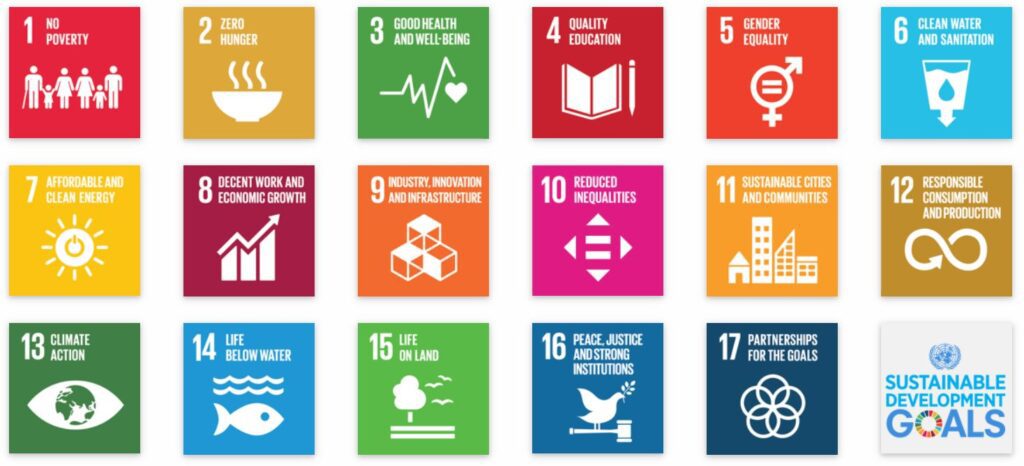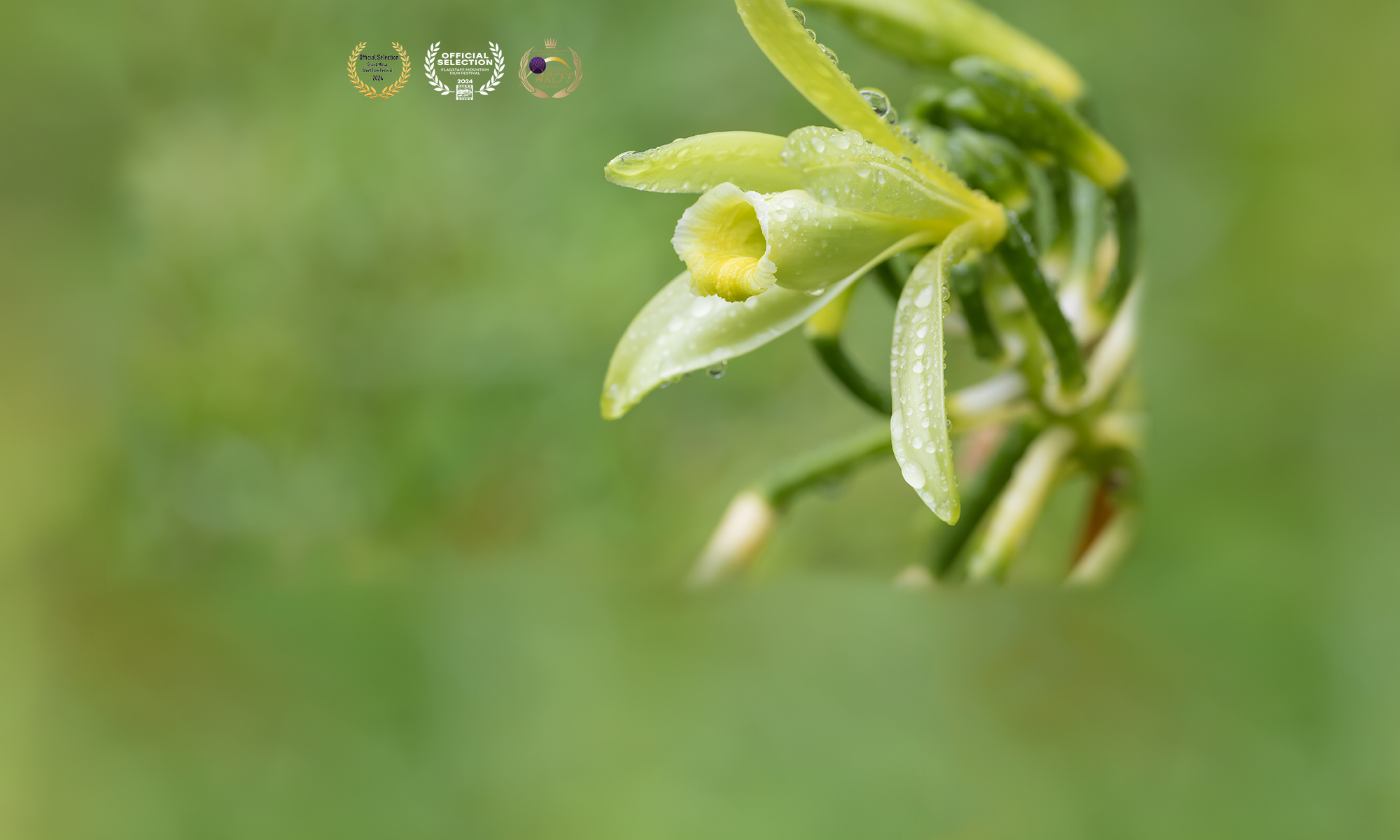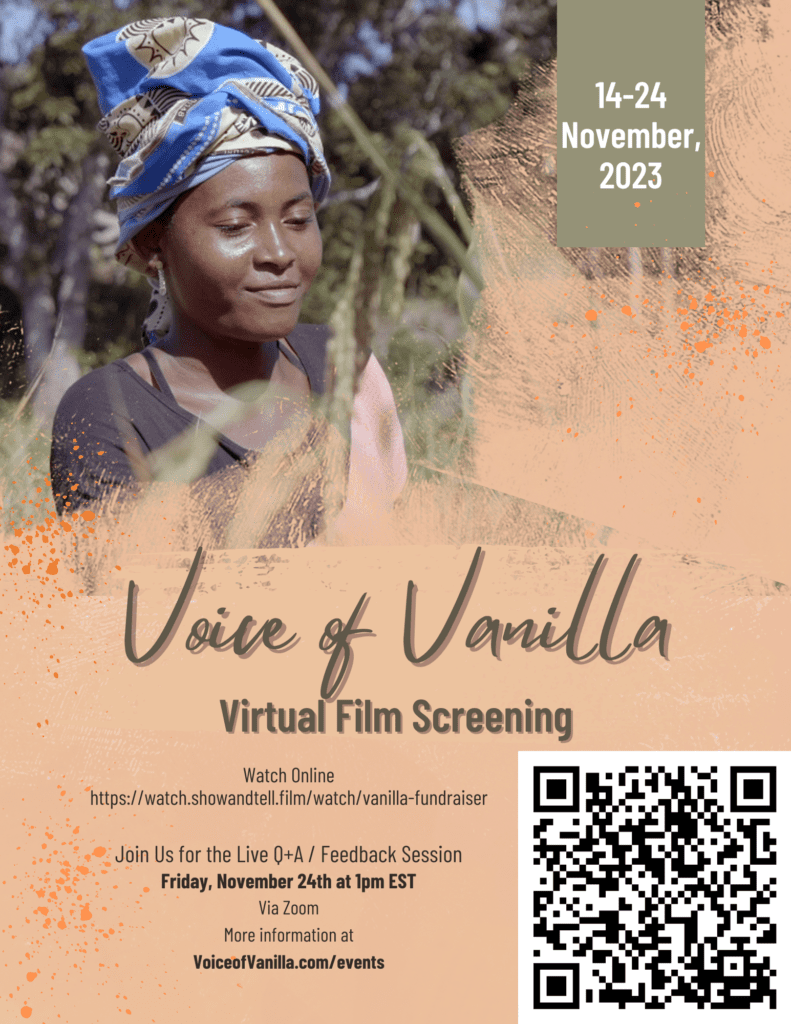In our interconnected world, the influence of media, particularly documentaries, in educating and inspiring actionable change is undeniable. “Voice of Vanilla” goes beyond storytelling. It addresses critical issues aligned with the United Nations’ Sustainable Development Goals (SDGs) and introduces an innovative educational program to amplify its impact.
SDG Connections
“Voice of Vanilla” resonates with multiple SDGs, emphasizing:
- Goal 1: No Poverty – By exposing the economic struggles of Madagascar’s vanilla farmers, the film underscores the urgent need for sustainable livelihoods.
- Goal 5: Gender Equality – It showcases the pivotal roles women play in agriculture, advocating for enhanced rights and equality in rural areas.
- Goal 9: Industry, Innovation, and Infrastructure – The documentary highlights the farmers’ challenges with unstable housing, pointing to the necessity for resilient infrastructure to support sustainable development.
- Goal 12: Responsible Consumption and Production – It encourages consumers to consider the origins of their purchases and supports sustainable farming practices.
- Goal 13: Climate Action – The film discusses the effects of climate change on agriculture, advocating for innovative adaptation strategies.
Through vivid storytelling and real-life examples, “Voice of Vanilla” not only informs viewers about these goals but also inspires them to take actionable steps within their communities and spheres of influence.
Educational Program as a Catalyst for SDG Advocacy
To deepen the documentary’s impact, we have developed a comprehensive educational program that serves as a valuable tool for understanding and engaging with the SDGs. This program is particularly beneficial for businesses and educational institutions aiming to bolster their sustainability efforts.
Program Features Include:
- Interactive Workshops and Seminars – These sessions explore sustainable agricultural practices using the vanilla industry as a case study, linking them directly to economic and social improvement.
- Learning Modules – Engaging content that prompts participants to examine the interconnectedness of social, economic, and environmental sustainability.
- Discussion Guides – Designed to facilitate meaningful conversations post-viewing, helping viewers reflect on and discuss the issues highlighted.
- CSR Training Components – Tailored for businesses, these modules help integrate SDG-aligned strategies into corporate practices, emphasizing the importance of building resilient infrastructure and supporting sustainable community development.
Why It Matters
For corporations, engaging with this program not only enriches employee understanding but also enhances the company’s commitment to global sustainability. For educational institutions, it provides students with practical applications of theoretical knowledge, preparing them as informed global citizens ready to tackle today’s challenges.
Furthermore, the program encourages all participants to understand their role within the global ecosystem, promoting responsible consumerism and proactive advocacy for sustainable practices.
Join Us in Fostering Sustainable Change
“Voice of Vanilla” and its educational program present a unique opportunity to effect tangible, positive change by aligning everyday actions with global sustainability goals. We invite corporations, educational institutions, and all stakeholders committed to sustainable development to join this initiative. Together, we can create a significant impact that transcends borders and generations.
Leveraging the universal appeal of film, coupled with structured educational tools, we aim to propel us towards a more sustainable and equitable world. Discover how you can participate in this transformative journey and help spread the messages within “Voice of Vanilla.”
For more information on how to get involved, contact [email protected]



